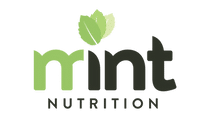Supplements for Optimal Health: Myths and Truths
- by Christiane Matey
- Blog, Healthy Living, Natural Supplements

Relying on supplement advice from “Dr. Google” or the latest social media influencers can have unexpected (and possibly dangerous) side effects. When I meet with clients about optimizing their health, one question almost always comes up: “Which vitamins should I take?” or “Which supplements should I take?”
Choosing the best vitamins and supplements isn’t as simple as grabbing the first bottle you see off the shelf or clicking ‘buy now’ on whatever shows up in your Google search query. A guiding principle to keep in mind is food first, supplement second, and medication last.
Food First: Nourish from Within
Your body thrives on nutrients from whole, natural foods. An abundance of essential vitamins and minerals can be obtained through a well-rounded diet. For example, many people are concerned about calcium for bone health. Instead of adding another supplement to your daily routine, you can increase calcium intake from food with:
- Leafy greens (spinach, kale, collards)
- Broccoli
- Beans and lentils
- Tofu and tempeh
- Grass-fed dairy (milk, yogurt, cheese)

Plus, high doses of calcium supplements can actually be harmful. They can lead to kidney stones or heart issues. Food sources are almost always safer and offer additional benefits like fiber and antioxidants.
Myth #1: All Supplements Are Safe Because They’re Natural
A common misconception is that since supplements are “natural,” they must be safe for everyone. However, this isn’t always true. Herbal and nutritional supplements can interact with medications in ways that may cause harm. For example, St. John’s Wort is a popular herbal remedy for depression and anxiety, but it can reduce the effectiveness of birth control pills and prescribed antidepressants.
Myth #2: Supplements Are Unsafe Because They’re Not FDA Approved
Yes, the FDA doesn’t regulate supplements as strictly as medications, but there are plenty of safe supplement options out there. The best supplements are medical-grade, tested by a third party, and contain bioavailable (easy-to-absorb) ingredients.
When deciding which vitamins or supplements to take, guidance from a healthcare professional trained in nutrition and supplementation is crucial. Not all supplements are created equal. For example, the synthetic ingredients and unnatural fillers in cheaper supplements—AKA the ingredients made in a lab with chemical-sounding names—are harder for your body to absorb and potentially harmful.
Truth #3: Supplements Bought Online Can Be Counterfeit
Purchasing supplements from online retailers can be risky as counterfeit supplements are common, especially from unauthorized resellers on Amazon. ConsumerLab recommends shopping directly from the brand’s website or other authorized resellers.
Truth #4: Protein and Amino Acid Supplements Aren’t Just for Bodybuilders
Most of our clients only mention vitamins and minerals when asking about supplements. However, don’t be surprised when we bring up protein and amino acid supplements, including creatine, something most people associate with bodybuilding. They can benefit many people, especially those of us over 40. Protein needs increase as we age, making it harder to maintain muscle mass.

Adding a protein booster in powder form to a smoothie or beverage is an easy way to ensure you’re fueling your body properly. Of course, there are health instances (like kidney disease) where extra protein does more damage than good.
Supplement Wrap-Up: A Personalized Strategy Is Best
Ultimately, figuring out which vitamins and supplements to take requires a personalized approach. Food should always come first as your primary source of nutrients, but supplements can fill gaps when needed. Avoid high doses of certain supplements, such as calcium, which can do more harm than good. Be careful where you purchase your supplements and consider adding a protein boost to your daily routine. Last but not least, I may sound like a broken record (while aging myself a bit with the record reference), but always consult a healthcare professional when deciding which supplements are best for you.
Share this Post

Christiane Matey
Integrative Nutritionist & Dietitian
